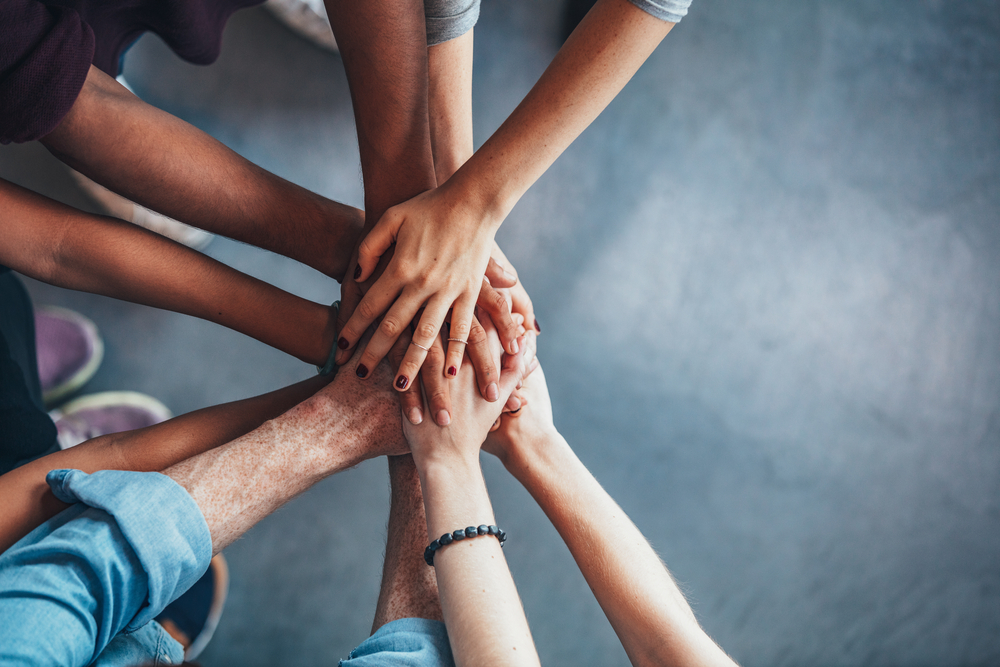After finishing an addiction rehab program, individuals enter a stage in their lives where they must adjust to their regular lives and try to remain sober. This period is often difficult and necessitates ongoing therapy, the formation of new ways to cope, and a support system to aid them in their journey. It is essential to formulate a plan on how to confront triggers and cravings and to remain devoted to attaining and keeping sobriety.
This article will discuss what to expect if you or a loved one has recently graduated from an addiction treatment program and why it is important to stay involved in your hard-earned recovery.
What Happens After Graduating From an Addiction Rehab Program?
Upon finishing an addiction rehab program, there are a variety of possibilities for people to keep on their recovery path. Many rehab centers have an aftercare program with regular therapy and assistance groups to assist those in recovery to stay sober and continue to work on their healing. Additionally, some may decide to continue therapy on an outpatient basis to address any issues that could have contributed to their addiction. Joining a support team such as Alcoholics Anonymous (AA) or Narcotics Anonymous (NA) can give a sense of community and accountability, as well as useful advice and tips for staying sober. For some, a sober living facility can give a controlled and supportive atmosphere for those in early recovery.

Finally, certain rehab centers provide a continuing care plan that is a gradual transition from inpatient rehab to outpatient treatment and subsequent support. This is often recommended for individuals who have gone through the primary rehab process but are not prepared to go back to their home or usual routine.
It is important to understand that the process of recovery is continuous, and there are numerous ways to recover. The most important thing is to discover the suitable blend of support and treatment that works for the specific person.
What is Aftercare?
When discussing addiction therapy, aftercare is a term that refers to the persistent assistance that is given to those who have completed a structured program to address drug misuse or addiction. This can encompass a broad range of services such as therapy, counseling, support groups, and other forms of care that are designed to help individuals uphold their rehabilitation, stop relapse, and enhance their general well-being.
Why is Aftercare Important After Addiction Rehab?
Aftercare programs offer sustained assistance and attention for people who are going through rehabilitation, which can be essential in helping them remain abstinent and enhance their overall mental health. One of the primary reasons for the importance of aftercare is that it diminishes the probability of relapse by aiding individuals to stay on track with the progress they achieved in rehab and carry on striving for recovery. Moreover, aftercare can assist individuals in understanding and dealing with underlying problems such as mental illness or injury, which commonly bring about addiction.
Aftercare is essential for an individual’s recovery journey as it allows them to construct a system of support, including both peers and professionals, to assist them in overcoming any challenges. This kind of program also provides a structured setting for individuals to persist in their recovery and pick up new practices and behaviors. Additionally, aftercare can help people to reintegrate back into society, locate employment, and rebuild friendships. In the end, aftercare is an integral part of the recovery process, giving continuous support and care that helps individuals stay steadfast in their sobriety while living a satisfying life in recovery.
Types of Aftercare
Following addiction treatment, the kind of aftercare a person receives can vary. The form of support that is provided is dependent upon a person’s particular requirements and the type of treatment they have received. The following are common types of aftercare:
12-Step Groups
12-step groups such as AA and NA are a great way for individuals in recovery to find the help and support they need. Meetings are held in a friendly and welcoming environment, allowing members to connect and share their stories with one another while working through the 12 steps. These groups provide a great source of motivation and camaraderie, helping individuals in recovery stay on track with their recovery journey.
Group Therapy
Group therapy is a powerful tool for recovery, as it allows for individuals to learn from and support one another. People can share their stories, feelings, and experiences with others who have faced similar struggles, creating a sense of community and security that can be difficult to find elsewhere. Moreover, being able to hear the stories of others can provide comfort, understanding, and hope. Group therapy is an invaluable source of support for individuals in recovery.
Individual Therapy
Individual therapy is an integral part of addiction recovery and can aid in developing healthier coping skills and self-awareness. An individual therapy session provides a safe space to talk openly with a therapist about the emotions and behaviors that are associated with addiction and the recovery process. During these sessions, individuals can work together with the therapist to develop an action plan to address their specific needs and challenges. Ultimately, individual therapy sessions can be a powerful tool for lasting addiction recovery.

Sober Living Programs
Sober living programs are an incredibly important component of successful recovery from substance abuse. They provide individuals with a safe, supportive living environment that encourages positive habits and attitudes to maintain sobriety. These programs may include regular meetings, curfews, drug testing, and other rules designed to help individuals stay accountable and keep their sobriety a top priority. Sober living programs can be a powerful tool in aiding individuals on the path to recovery.
Medication-Assisted Treatment (MAT)
Medication-Assisted Treatment (MAT) can help individuals suffering from addiction to cope with their withdrawal symptoms or cravings. MAT has been proven to be an effective approach for improving treatment outcomes, particularly in cases of opioid use disorder. It is important for those who may need this type of treatment to seek help and get the support they need in order to ensure successful long-term recovery.
Benefits of Life After Addiction Rehab
Being in active addiction recovery can bring many benefits to individuals and their loved ones. Some of the benefits include:
Improved Physical Health
Addiction has a harmful impact on one’s physical health, leading to a variety of health issues. During the recovery process, however, individuals can achieve improved physical health. Healthy lifestyle habits such as exercising regularly, eating nutritious meals and consuming fewer substances can make a significant difference in one’s overall well-being. Additionally, seeking emotional support from family and friends or through professional counseling can also help an individual to make positive choices for improved physical health.
Improved Mental Health
Recovery not only allows individuals to address the mental health issues they are facing, but it can also lead to improved mental health. By taking part in recovery, individuals can learn healthier ways of living and develop skills to better manage stress and other challenges. This can lead to greater well-being, which is essential for improved mental health.

Increased Self-Esteem
As individuals progress in the recovery process, they often find themselves feeling more self-empowered and confident in their abilities. This increase in self-esteem and self-worth can bring about a number of positive changes, including more meaningful relationships, improved social connections, and ultimately, a greater sense of personal fulfillment. This increased self-esteem can be an important part of any successful recovery journey.
Improved Relationships
Recovery is an important part of rebuilding relationships with loved ones that may have been damaged by addiction. The process of recovery can help individuals to restore communication and connection with their families, friends, and other important people in their lives. Improved relationships through recovery can help individuals feel more supported and secure, allowing them to focus on their recovery journey which ultimately leads to successful long-term sobriety.
Enhanced Life Satisfaction
Recovery is a journey that allows individuals to explore their passions, gain clarity on their purpose in life, and ultimately find greater satisfaction and fulfillment. This process of self-discovery often leads to improved mental health, increased self-esteem, and the ability to better manage life’s inevitable challenges. With greater satisfaction and fulfillment in life, many individuals are able to live more meaningful and enjoyable lives.
In Conclusion
Life after rehab is filled with new opportunities and possibilities. Although the journey may be difficult, the rewards of engaging in a program for addiction recovery can be tremendous. People who complete recovery programs can expect to gain the ability to take charge of their lives and build better relationships with those around them. In addition, they can expect to improve their physical and emotional well-being, allowing them to create a more meaningful and fulfilling life. By taking advantage of these opportunities, people can open up a world of possibilities for their future and start building a more hopeful tomorrow.
Addiction Rehab in Los Angeles, CA
At Launch Centers, we work hard to deliver the highest level of care for addiction and mental health issues in Los Angeles. Our staff is devoted to aiding people with addiction, and our services and programs are customized for every person’s situation. With our various treatment options, exclusive approaches, and committed personnel, you can be sure that you are in the finest care with us.
We hope to be your companion on the path to recovery and provide you the chance to reach your fullest potential – please don’t hesitate to contact us if you need assistance. Contact us today.





